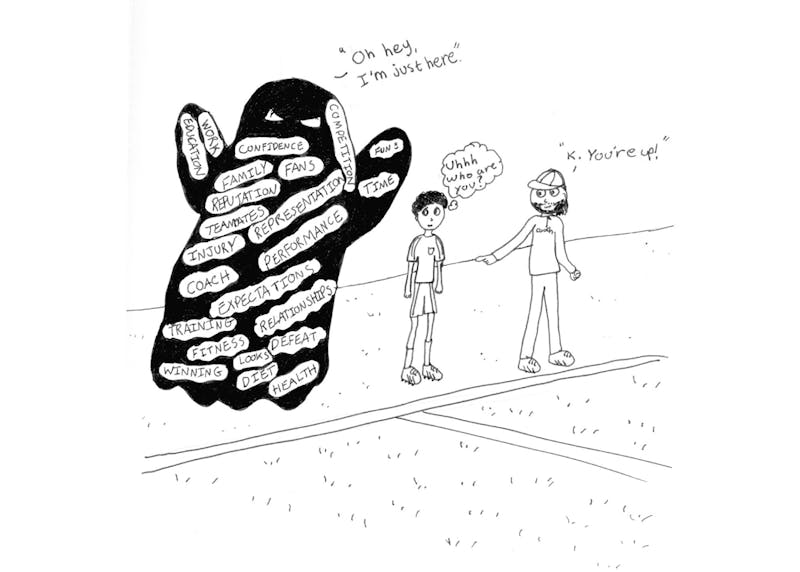Being a student-athlete is akin to holding a full-time position with demanding expectations — prioritizing academics as a student first and athletics as a close second. However, the distinction between these dual roles can often become blurred, necessitating the establishment of a healthy work-life balance to prevent falling behind.
Defined as giving equal importance to personal and professional endeavors, work-life balance is crucial for student-athletes who intertwine their personal and professional lives through their dedication to sports alongside academic pursuits.
Kyle Smith, a senior at the University of New Mexico and a catcher for the baseball team, underscores the significance of delineating time for personal needs and avoiding becoming overly fixated on baseball to maintain his work-life balance.
According to Smith, achieving balance involves allocating time for activities one enjoys outside of obligatory commitments, ensuring that life does not revolve solely around a single pursuit.
Similarly, Madeleine Miller, a sophomore volleyball player, concurs with Smith’s perspective on the importance of carving out personal time. She emphasizes that a work-life balance is essential for preventing burnout, advocating for engaging in activities unrelated to sports that bring joy and relaxation.
For student-athletes, managing time effectively can be challenging, with packed schedules comprising early morning training sessions, classes, and additional practice sessions. Creating a personalized schedule is key to reclaiming some semblance of control over one’s time.
Everett Hunter, a sophomore football player, stresses the significance of maintaining a tailored schedule aligned with personal goals to stay on top of academic and athletic responsibilities, underscoring the role of discipline in achieving balance.
Transitioning into college as an athlete can pose challenges in prioritizing academics over sports-related commitments. Hunter acknowledges the primacy of academics over football, highlighting the importance of self-discipline in maintaining this focus.
The University of New Mexico offers support services for student-athletes to enhance their personal and academic development, including study hall, tutoring, and book loans. Hunter emphasizes the benefits of utilizing these resources, particularly highlighting the value of study hall hours in aiding academic progress.
Both Smith and Hunter commend the administration for its support in fostering the holistic development of student-athletes, emphasizing the importance of self-discovery and academic growth alongside athletic pursuits.
Volleyball Coach Jon Newman-Gonchar plays a pivotal role in promoting work-life balance among team members by being attuned to their physical and mental well-being, organizing activities to foster team cohesion outside of formal training settings.
As Smith approaches the culmination of his college baseball career, he reflects on how maintaining a work-life balance has enabled him to discover his identity beyond the realm of athletics, recognizing the long-term benefits of such self-awareness.
Francesca Cicconetti is a dedicated beat reporter at the Daily Lobo, covering sports stories. For more updates, reach out to her at [email protected] or connect on Twitter @fran_cicconetti.
